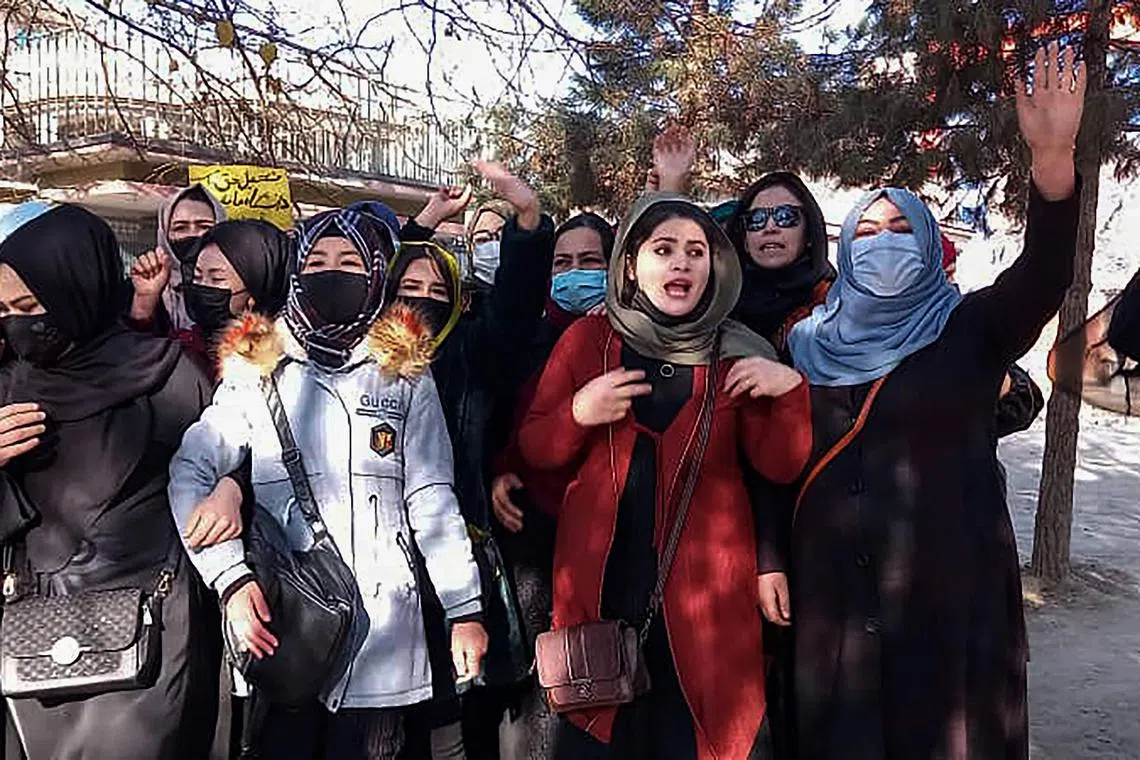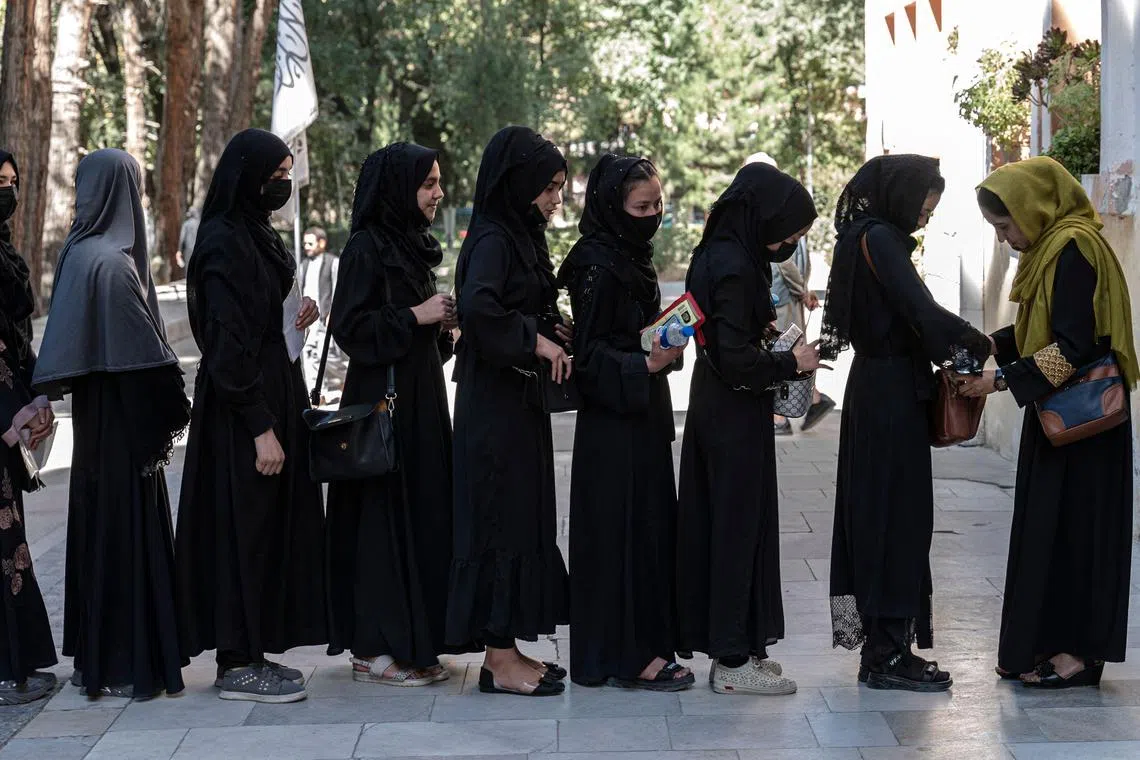Taliban minister defends closing Afghan universities to women
Sign up now: Get insights on Asia's fast-moving developments

Afghan women protest against the ban on university education for women, in Kabul, on Dec 22, 2022.
PHOTO: AFP
KABUL - Afghan universities were declared off limits to women because female students were not following instructions, including a proper dress code, the Taliban’s Minister for Higher Education said on Thursday.
The ban announced earlier this week
It has drawn global outrage, including from Muslim nations
But Mr Neda Mohammad Nadeem, Minister for Higher Education in the Taliban government, insisted on Thursday that women students had ignored Islamic instructions – including on what to wear or being accompanied by a male relative when travelling.
“Unfortunately, after the passing of 14 months, the instructions of the Ministry of Higher Education of the Islamic Emirate regarding the education of women were not implemented,” Mr Nadeem said on state television.
“They were dressing like they were going to a wedding. Those girls who were coming to universities from home were also not following instructions on the hijab.”
He also said some science subjects were not suitable for women. “Engineering, agriculture and some other courses do not match the dignity and honour of female students and also Afghan culture.”
The authorities had also decided to shut madrasahs that were teaching only women students but were housed inside mosques, Mr Nadeem said.
The ban on university education came less than three months after thousands of women students were allowed to sit university entrance exams,
Secondary schools for girls have been closed across most of the country for more than a year – also temporarily, according to the Taliban, although they have offered a litany of excuses for why they have not reopened.
Women have slowly been squeezed out of public life
They are also barred from travelling without a male relative and must cover up in public, and are prohibited from going to parks, fairs, gyms and public baths.

Higher Education Minister Neda Mohammad Nadeem speaks during a live TV broadcast, in Kabul, on Dec 22, 2022.
PHOTO: AFP
The Taliban’s treatment of women, including its latest move to restrict university access for them, drew fierce reaction from the G-7, whose ministers demanded the ban be reversed.
“Gender persecution may amount to a crime against humanity under the Rome Statute, to which Afghanistan is a state party,” the ministers said, referring to the International Criminal Court in The Hague.
“Taliban policies designed to erase women from public life will have consequences for how our countries engage with the Taliban.”
The international community has made the right to education for all women a sticking point in negotiations over aid and recognition of the Taliban regime.
Saudi Arabia, too, expressed “astonishment and regret” at the ban, urging the Taliban to reverse it.
But Mr Nadeem hit back at the international community, saying it should “not interfere in Afghanistan’s internal affairs”.
Earlier on Thursday, a group of Afghan women staged a street protest in Kabul against the ban.
“They expelled women from universities. Oh, the respected people, support, support. Rights for everyone or no one.” chanted the protesters as they rallied in a Kabul neighbourhood, footage obtained by AFP showed.
A protester at the rally told AFP that “some of the girls” had been arrested by women police officers. Two were later released and two remained in custody, she added, speaking on condition of anonymity.

An Afghan female guard frisks students before they sit for entrance exams at Kabul University, in October 2022.
PHOTO: AFP
Women-led protests have become increasingly rare in Afghanistan since the Taliban took over the country in August 2021, particularly after the detention of core activists at the start of this year.
Participants risk arrest, violence and stigma from their families for taking part.
Despite promising a softer rule when it seized power, the Taliban has ratcheted up restrictions on all aspects of women’s lives.
After the takeover, universities were forced to implement new rules including gender-segregated classrooms and entrances, while women were permitted to be taught only by professors of the same sex, or old men.
The Taliban adhere to an austere version of Islam, with the movement’s supreme leader Hibatullah Akhundzada and his inner circle of clerics against modern education, especially for girls and women, some Taliban officials say.
In the 20 years between the Taliban’s two reigns, girls were allowed to go to school and women were able to seek employment in all sectors, though the country remained socially conservative.
The authorities have also returned to public floggings of men and women in recent weeks, as they implement an extreme interpretation of Islamic syariah law. AFP


